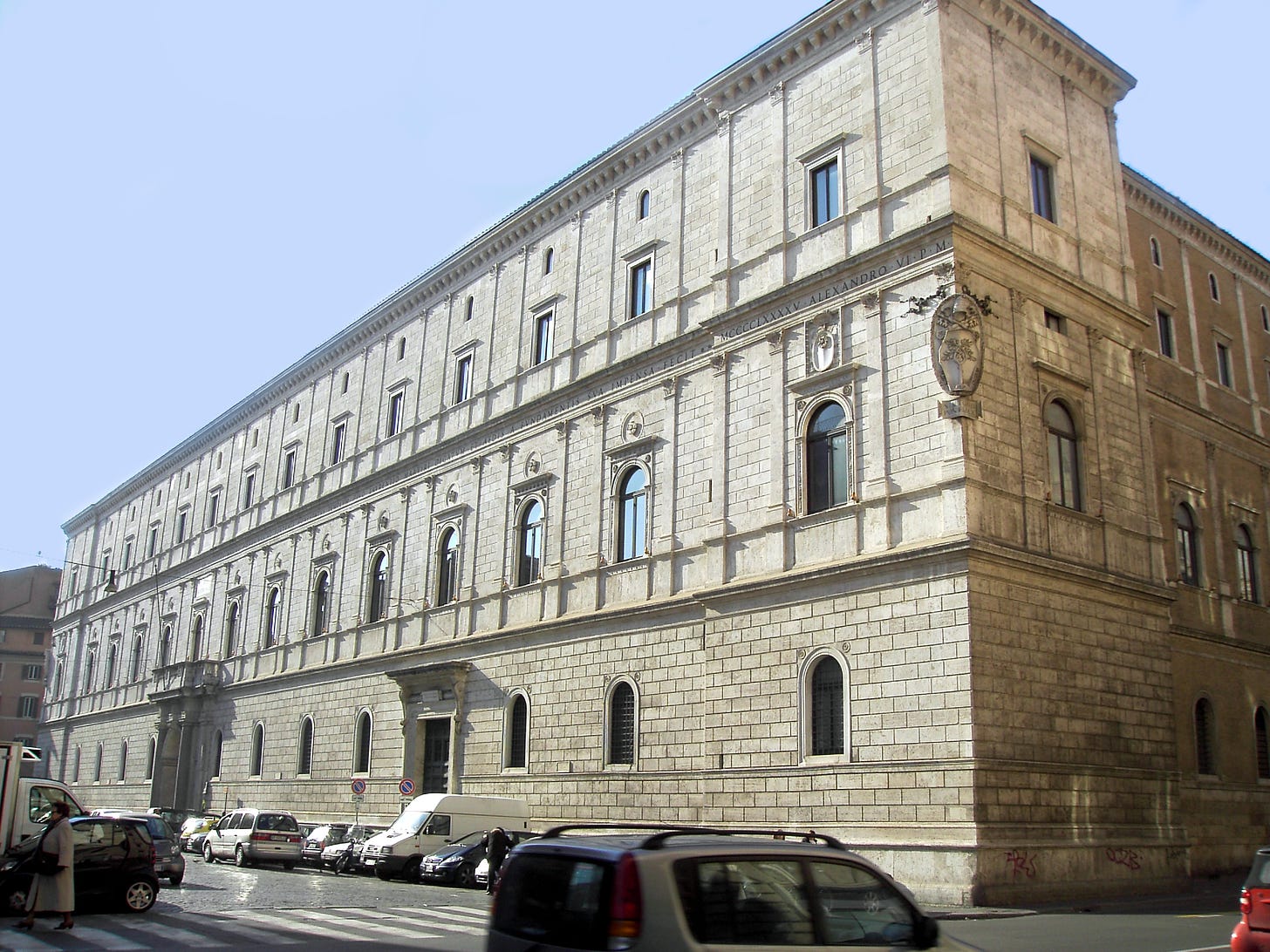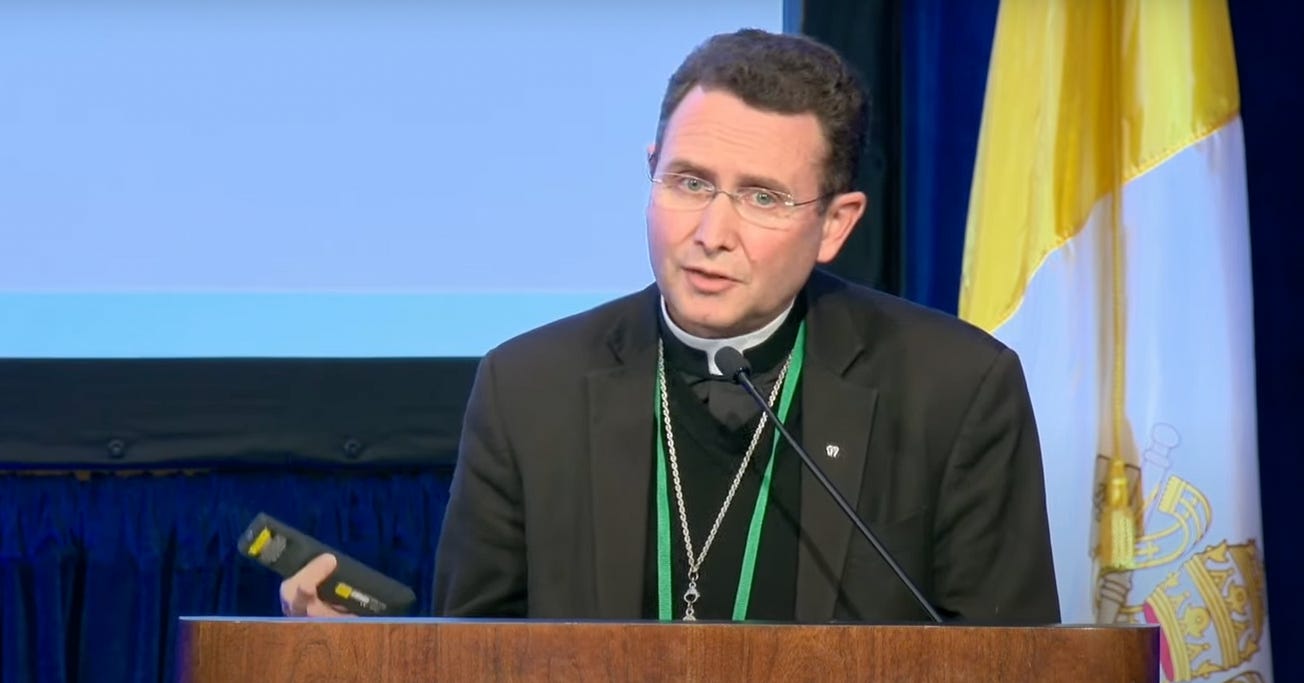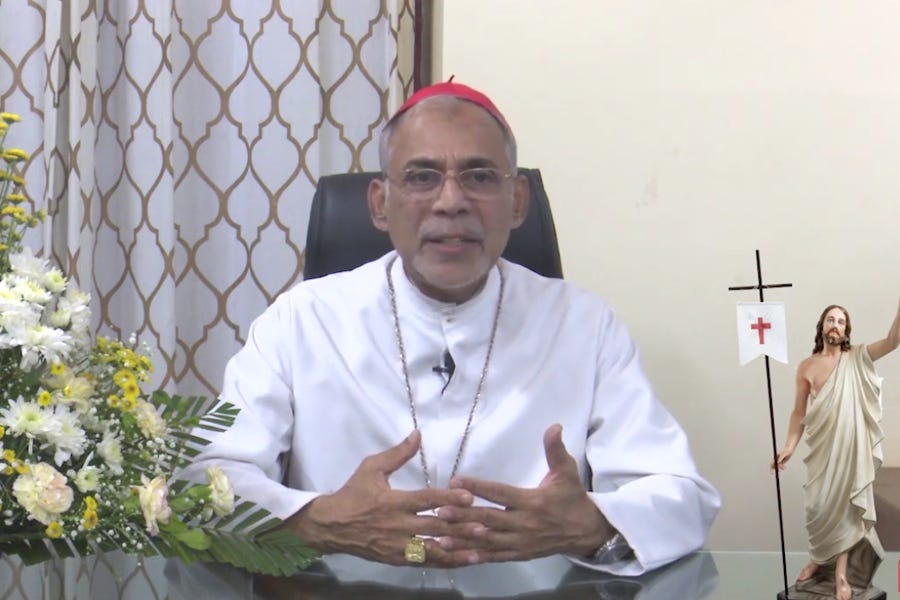Happy Friday friends,
I want to start by thanking all of you for the dozens of kind notes, prayers, and most especially Mass intentions, which I received in response to last week’s newsletter. It was frankly unexpected, and deeply touching.
We draw a fair bit of criticism for the work we are trying to do at The Pillar, from both sides of the Catholic cultural divide, and we are literally sustained by your support, personal as well as practical. So, really, thank you.
Quick Links
He’s currently in being detained at Her Majesty’s pleasure, waiting for a bail hearing scheduled for next week and the court will then decide on his extradition to the Italian Republic, where he’s wanted on charges of money laundering, fraud, tax evasion, and some other things.
In UK court documents published back in March, Torzi made some lurid allegations about extortion, threats of violence, and blackmail at the heart of the Secretariat of State; if he were to repeat and elaborate on those accusations in a Roman court, it could have serious repercussion on the Vatican side of the River Tiber.
Torzi’s also a wanted man in Vatican City, of course, where he skipped bail last year on charges of extortion, fraud, money laundering, and so on.
Given his busy legal schedule in London and Rome, Torzi is unlikely to see the inside of the new courtroom any time soon, so I wonder whose trial they think will be drawing the big crowds?
—
While many places in the U.S. are looking ahead to a summer post-COVID and some kind of return to normalcy, the pandemic is still burning fiercely in other parts of the world.
One of the countries worst hit has been India, where civil institutions have cracked under the strain of the mass spread of the virus and the development of at least two new mutant variations.
Beware of hype
The effect of Cardinal Ladaria’s letter to Archbishop Jose Gomez and the U.S. bishops continues to ripple out. When reports of the letter, dated a week ago today, first came out, it was portrayed as a pointed rebuke to Gomez and the USCCB’s supposed plans to draw up a binding policy on the (non) distribution of Communion to pro-abortion politicians, with a lot of selective quotes appearing to show it in that light.
I’m always leery of news reports that appear simultaneously in two or three different places, all with the same quotes and the same take; I spent too long working in politics I guess. We got a hold of the letter ourselves and published the whole thing, so you can see for yourself what it actually said.
A couple of standout points I think are worth noting:
It was the CDF that suggested to the USCCB that they discuss the issue of Eucharistic coherence at the level of the conference, not the other way around.
Some individual bishops raised the idea of a national policy with the CDF during their ad limina visits last year, but both the CDF and the USCCB have been clear from the beginning that the buck stops with each diocesan bishop in what boils down to individual pastoral relationships with their people.
Ladaria did encourage the USCCB to have an extensive dialogue on the subject, but stressed the bishops needed to affirm unanimously “at the level of the conference” that “those who are directly involved in lawmaking bodies have a grave and clear obligation to oppose any law that attacks human life.”
For myself, I think that this unanimity is essential and is worth taking the time to forge. There will be those who hold out against Ladria’s affirmation, but they are unlikely to be so-called conservatives, like Archbishop Aquila, Archbishop Cordileone, or Bishop Olmsted.
Ladaria reminded the U.S. bishops that “Christians are called to reject, as injurious to democratic life, a conception of pluralism that reflects moral relativism. Democracy must be based on the true and solid foundation of non-negotiable ethical principles, which are the underpinning of life in society.”
Come the debate at the USCCB meeting in June, those bishops who appear willing to negotiate these “non-negotiable” principles may find themselves struggling to lean on Ladaria’s letter for support.
Whether you think I am right, or you think I’m nuts, you can read my analysis in full here.
What are we?
This week, another bishop was “resigned” following a Vos estis investigation, this time in Poland.
JD and I have debated back and forth for a while about whether such “resignations” are a mark of progress and a sign that the provisions of Vos estis lux mundi are working two years on from its promulgation by Pope Francis.
I am sensitive to the view that, after the horror of the McCarrick scandal, some sign — any sign — that the bishops of the Church are holding themselves to account in cases of negligence or abuse is a good thing.
But I remain deeply uncomfortable with the continued deployment of the “gentleman’s way out” for bishops found to have violated canonical norms in office.
A hobby horse I’ve ridden for as long as I have been a canon lawyer is that there is no such thing as “merely procedural law,” despite what the Code says. The process by which justice is meted out matters at least as much as the final result it leads to. In fact, I would argue that the process is what makes any result just or unjust.
We do not usually allow government leaders to call off a prosecution against themselves by resigning and taking early retirement (with full honors of office and pension). It just isn’t something that happens in a credible legal jurisdiction, and that matters.
Vos estis is, essentially, an investigative charter for looking into different kinds of alleged abuse. It defines certain kinds of crimes which can be committed by a cleric, including a bishop, but these are fairly narrowly focused.
In the Vos estis cases which have led to episcopal resignations, it seems at least possible that there may be grounds to prosecute far broader sets of criminal behavior outlined in Pope Francis’ 2016 law Come una madre amorevole, which includes a bishop “doing harm,” spiritual or physical, to his people.
I say “seems possible,” because, of course, we don’t know. The results of the investigations are not made public, only the fact of a resignation (or not) at their conclusion.
Justice is about more than just getting someone out of a job. It is about the discovery of truth, bringing what has been done in the dark into the light, and allowing an authentic and public reconciliation to occur. The ‘how’ and ‘why’ of a result matters as much in a legal process as the ‘what’ at the end of it — otherwise how can anyone have confidence that justice has truly been served?
So much of what we have heard about reform and accountability in the Church in recent years has been framed as a trust-building exercise, rebuilding trust in the Church’s decisions requires building trust in how those decisions are made.
This isn’t, to be clear, about dragging bad actors through the mud with the gory details of their misdeeds. The rigors of public, transparent legal process and results are as important, even more important, to the people it exonerates than for those it condemns. For many innocent clergy who find themselves accused, their only hope of clearing their name is in due process, something all too many of them are still denied.
As Pope Benedict once observed, a society without laws quickly becomes a society without rights, and the Church is a society, indeed a perfect society — meaning she innately has everything she needs to order herself as a society, including laws.
Private investigations leading to forced, sometimes face-saving resignations is not a work of law governing a just society, it’s the kind of HR process you would expect from a large corporation. And that is not what the Church is, and not what she is called to be.
On the road
As you might know, JD spent most of this week in the Diocese of Knoxville, Tennessee, doing some follow-up reporting on recent stories we have run. I have caught up with him infrequently this week, at least compared to normal, and I am looking forward to seeing what he comes home with, but the signs are it is going to be interesting.
It’s been an important proof-of-concept moment for us at The Pillar. When we launched four months ago, we set out to do the kind of long-form work that, sadly, there isn’t time or space for in a lot of media anymore. That we can do stuff like this is down to the support of our subscribers. So again, and sincerely, thank you.
That JD spent four days there without figuring out there was a minor league Cubs affiliate in the town is, I am choosing to believe, proof of how busy he was. But judge that assumption on what we report from the trip.
See you next week, and go Smokies.
Ed. Condon
Editor
The Pillar






